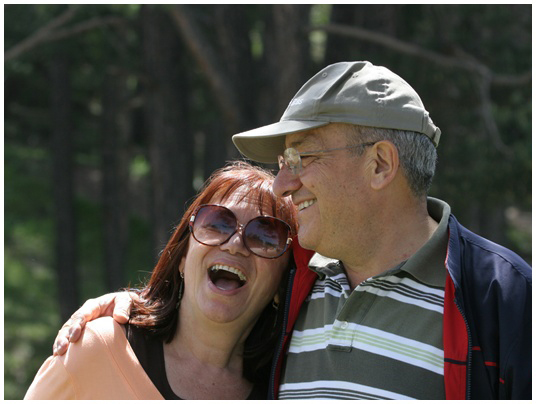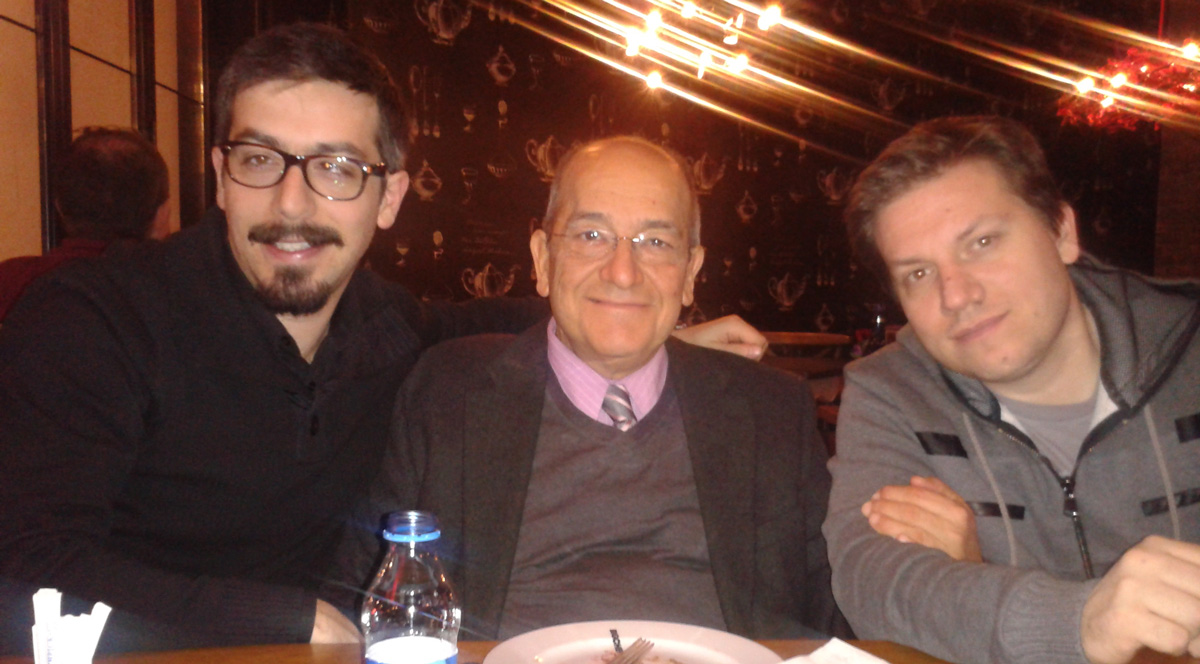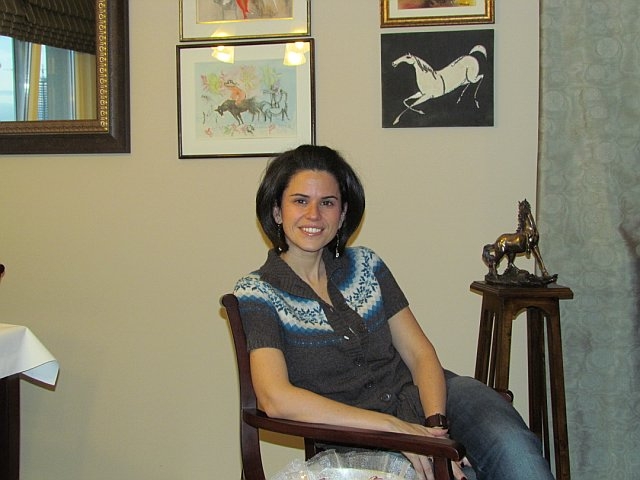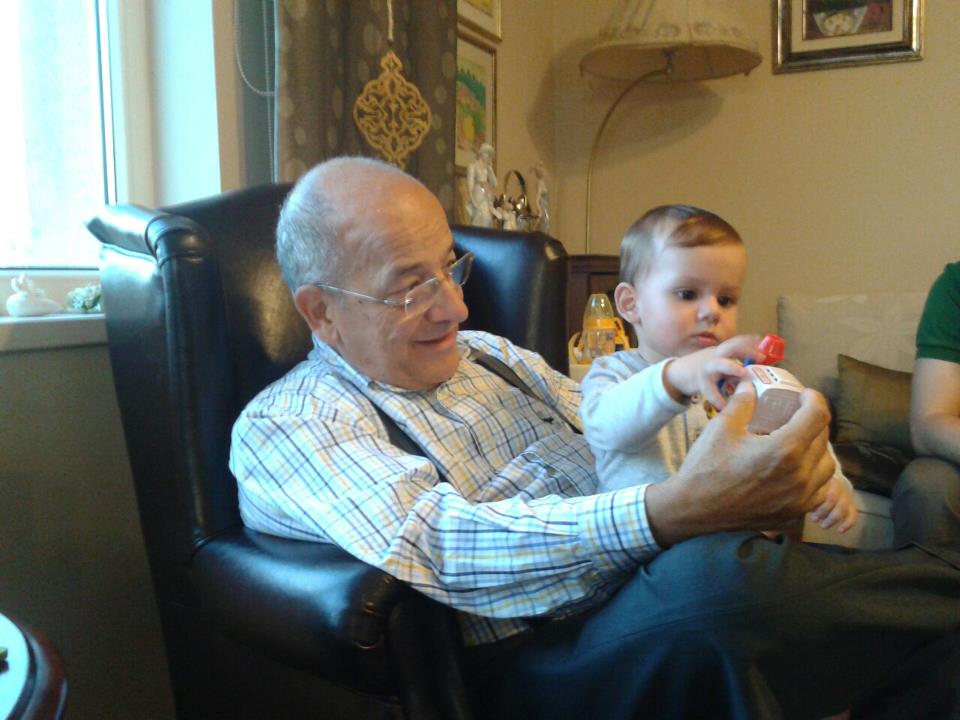Wednesday Talks with Nesrin Balkan
Yuda Yürüm: “My years at Sabancı University have been my greatest and most productive. I have students, we make lots of publications, I manage many projects and I am generally happy to be at Sabancı. I view my students as my own daughters and sons. Once a student starts working with me, it is as if there is a lifelong contract between us.”
Yuda Yürüm is one of the most senior professors of the Faculty of Engineering and Natural Sciences. I also remember him as the first faculty member for whom we issued a press release for international achievements. When Yürüm was given a fellowship to The Royal Society of Chemistry in the UK in early 2000, he was the first scholar from Turkey to be admitted, and we were beyond ourselves with excitement as our university had opened merely a year ago. His international achievements do not end there: He is the first scientist from Turkey to win the Fulbright Fellowship, and the only person to win it twice. We spoke with Yürüm about how to become a scientist, how he cares about his students, and how to lead a happy family life. The interview will continue next week.

Can we start from the beginning? When and where were you born? How was your childhood?
I was born in Ankara in 1946. I come from a very old family in Ankara. I was born in Samanpazarı, the Jewish town. I grew up in Yenişehir, where we moved in the ‘50s. I have little memory of Samanpazarı; my childhood was primarily on Ataç Street.
Ataç Street?
It is a very well-known street in Ankara, and a lot of famous people lived there. In 2002, the children of Ataç Street had a gathering. There were so many of us…
Who were there?
First off, there was Akın Öngör, President of Garanti Bank. He lived two doors away. He had older brothers; Gürol and Birol. The famous orthopedist Behçet Sepici was there; he is retired now, he is a little older than I am. We are all from the same neighborhood. Across the street lived Selçuk Güçeri, who is the Dean of the Engineering Faculty at Worcester Polytechnic Institute. His older sister Professor Ülkü Öktem (Wharton School of the Pennsylvania University) is the mother-in-law of our Professor İbrahim Tekin. This was a time when the street was lined with small houses, where we spent an entire summer in the street. Those were delightful days in Ankara. When we walked into Kızılay, the Boulevard, everybody would know each other and say hi. I finished Atatürk Lisesi, one of the best schools in Ankara, with honors and was admitted to the Middle East Technical University. I graduated from the Chemistry Department in 1969 and have always been proud to be its student. By the way, I’ll let you in on something I have kept to myself so far: the Chemistry Department gives an award to its alumni with extraordinary achievements, and I will be receiving that award this May.
Can I write this? It’s a good scoop you know.
Please do. I haven’t told anyone yet but I’ll go to Ankara in May to receive that award. The alumni who have received that award include some of the most successful scientists and businesspeople, and I am proud to be considered one of them. I have my bachelor’s and master’s from METU, and my doctorate is from Hacettepe. I began in 1970 with a British advisor, Professor Alec F. Gaines. I am one of his first students in Turkey and we still write each other. He is retired now and lives in Scotland. I learned lots from him. Scientifically speaking, the doctorate was immensely important to me. Back then, the Faculty of Chemistry at Hacettepe was very small. The entire faculty, including teaching assistants, was 18 people. Our department head gave me a course to teach as soon as I was ABD. It had only been two years since my graduate degree and I was not a PhD yet, but I started teaching courses at Hacettepe in 1972. The rest is history.
When did you marry?
I married in 1971. We have been married for 42 years but we have been together for 47. In 1974, I had two major works: one was my elder son Kemal, the other my doctorate. One year after that, I went to the National Coal Board of the UK for postdoctoral research. Although it was called that, it was entirely a research institution. I spent a year there. I had been there before; my advisor had sent me, and I had spent a summer there. We returned in 1976 and I began working for my associate professorship. I earned that degree in 1979, and that was when my second son Alp was born. In 1980, I spent a year in the United States with the Fulbright Visiting Scholar program. I received the same scholarship again in 2007, and this makes me the only person in Turkey to receive Fulbright scholarships twice.

Are you the only person who has managed this?
I think so. We had intended to stay for a year but we stayed for two. I worked at the University of Tennessee in Knoxville, and the Oak Ridge National Laboratory. Oak Ridge is one of the leading labs in the United States where the greatest scholars work. That was when the Council for Higher Education was established. I asked for permission to stay for another year but was declined, so I resigned from Hacettepe. While in the United States, the Weizmann Institute in Israel asked me to set up a coal laboratory, so I went there and stayed for three years. Weizmann is one of the leading institutes of the world and many of its scholars have received Nobel prizes. So we went abroad in 1980 and stayed for two years in America and three years in Israel, coming back in 1985. My service requirement for full professorship had been fulfilled by then, so I reapplied to Hacettepe and they accepted.
Your academic career began during one of the most troubled times in Turkey.
Correct; I went to the United States on September 5, 1980, and a week later was the military coup. I was a young professor at Hacettepe then, and we were dodging bullets in the lecture halls, getting swallowed up in student fights. It was a bad time.
It was a chaotic environment for a professor.
In August 1985, I became a full professor at Hacettepe. I was 39 back then, and I have been a full professor for 28 years. I am the youngest professor among my peers.
One of the youngest professors in Turkey
A full professor at the age of 39?
Yes, at 39. Then of course I was tasked with administrative duties; I was an associate dean, then a deputy dean, and finally the department head from ’93 to ’99. By then, Hacettepe’s Department of Chemistry had over 500 students and 50 professors and was almost a faculty in its own right. While I was the department head there, I was also in contact with Sabancı University. In 1997, Ali Alpar, Burak Erman, Zehra Sayers and I began to prepare the syllabus of the Science of Nature course at FENS. I started visiting Sabancı for this purpose. In 1999, I told Sabancı’s founding president Tosun Terzioğlu that I wanted to join Sabancı. I received a letter of admission from him, and started work at the building in Karaköy on September 1, 1999.

The campus was not ready back then, so everyone was at the Karaköy building.
I have been here since. My years at Sabancı University have been my greatest and most productive. The years I spent at Hacettepe and METU were also great, and the same goes for the institutions I worked abroad. They all contributed to me; they all helped me to develop. Now I’m at Sabancı and am generally happy to be here. I have many students, we make lots of publications, I manage many projects.
In that case, can we call your years at METU, Hacettepe and Sabancı as your apprenticeship, journeymanship and mastership years?
I think my mastership was at Hacettepe; I was both a well-known professor there, and I trained lots of students.
Of course, you became a professor there.
Yes. In fact, many of my students there are now professors themselves, or they work in research institutions. My years at Sabancı University have been the greatest, but my other universities are very dear to me as well. I still feel at home when I go there, both at METU and Hacettepe. That is where I grew up. I was but a kid when I started METU, and now I’m almost retired. All of those institutions have their places in my heart. METU is my alma mater and Hacettepe is where my career began. We grew up in these places, we learned, we went abroad, we came back to them, it was great. We did have difficult times too of course, but that happens to everyone.
Indeed.
Looking back, I can say that my years as a professor were well-spent. I strive to teach students everything I know, I revise my courses every year, I try to add something onto the syllabus year after year. I meet with my former students sometimes, we are still in contact. They are my former doctorate and graduate students. They invite me to their class meetings.
I asked your colleagues about you, and they said you were a great teacher, a great mentor and the go-to person for ideas. They said you were one of the few who deserve to be called a scientist, and that you are keenly interested in what your students do.
I must thank them for their compliments. I am interested in my students because I view them as my own daughters and sons. Once a student starts working with me, it is as if there is a lifelong contract between us. I will help them in any scientific issue they may run into. If they allow me, I will be delighted to play a part in their social lives too. They are part of my family.
I talked to Tosun Bey and he said you were a wonderful scientist and quite the gentleman with always a smile on your face.
Tosun Bey is precious to me in all respects; I admire him greatly and he has played a great part in my life.

You have a very severe expression on your face and people who don’t know you could think that you were a very harsh person.
Yes, people tend to think like that.
I’ve always wanted to jest, “Run for your lives!” when I see you.
I do appear very grave but I’m not like that. I am serious in my job and what I do. But those who know me in my private life know how sincere and warm I am.
I absolutely agree.
Of course, only loved ones get to see this.
I found that out in a social environment too. We were sitting at the same table with you and your wife at Uluğ Çapar’s valedictory dinner and that is when I realized that you were a very pleasant, talkative, humorous person.
I remember that dinner very well.
It is a pleasure to spend time and have a conversation with you.
Everyone says that the severity is a mask and if you were to go behind the mask, you would see the real Yuda.
See your true face, in a way.
It could be a defense mechanism or something I gained over the years as an administrator. I never appear intimidating to my friends or students though. But I do want my graduate and doctorate students to work well, and I expect them to do what I want them to do. If they don’t do it, I let them know. I don’t say anything harsh, but the way I act lets them know that I’m not entirely pleased. Given that I’m still in contact with many of my former students, I guess they like me too.
Absolutely true. Tosun Bey also said that you were a wise man.
I am honored that Tosun Bey regards me so highly.
One other thing Tosun Bey told me is that you are not concerned with the commercialization of science.
He is definitely right. I have always preferred to do science for science’s sake. You can, of course, gain material benefit from science. But this has always been far from me. Whatever I produced, it was for scientific purposes. I never sought financial benefit through science. This doesn’t mean that our results aren’t used in the industry – they of course are. But I have never done something solely to make money from it. Science is what matters to me. What makes a university professor? He is supposed to have genuine interest in his courses and students, strive to educate them and train them in the best way possible. What separates scientist from teacher is his scientific work. A good scientist must be properly involved in scientific studies and publish his work in reputable journals, with integrity of course. He must do everything possible to make sure that the knowledge he generates is passed on to the next generation. Our graduate and doctorate students are the conduit of information to future generations. They will give what they take from us to the new generation.
Scientific integrity, productivity and good relations between the student and the professor are paramount. I learned this from my own doctoral advisor and convey the same to my students. The purpose of a scientist in life is to do scientific research, train his students well and share the information he gains from scientific research. These are the messages I give my students all the time. You are not supposed to brood over the information that you generate. You must publish them – this is your solemn duty.
Sharing, in other words.
Of course, you must share these with the world at large. If you have a scientific output, you must announce that.
This is a way to serve humankind.
Absolutely.
And expected of a scientist.
That should be the ultimate goal.
And about commercialization…
It is acceptable, but not my style.
So commercialization is not a priority for you.
There are people who do it; I have friends who do it, but it’s never been for me.
There is no right or wrong in this; it’s just not your style.
Had I wanted to do that, I’d never have sought an academic career; I’d have gone and worked in the industry after my master’s degree. I would have found a job easily and made quite a lot of money. I had been dreaming of being a professor when I was just a student at the university, even in high school, and I’m glad to have achieved that goal. It must be one of the most satisfying jobs in the world. Every year you get a new group of students and you have to teach them all you know. That’s what keeps you dynamic, and that’s why it is important to me.

So being an academic, advancing science and teaching new generations at the same time is your goal in life.
Yes, teaching people things; that’s what I’m about. I have never sought commercialization or material benefit. Like I said, I could have gone that way had I wanted to. Both my sons are chemical engineers, you know that. My elder son works in the industry. My younger son went all the way to his doctorate in my alma mater, METU Chemical Engineering. He is now a researcher here at SUNUM, and it makes me proud to do research with him.
Are all the men in the family in the same profession? What can you say about your relations with your father and your two sons?
My father owned an electrical supplies store and I would help him out during the summer; that is the only trade experience I have. This was all before university. My father died at the age of 59, and the burden of the family was on me after that. My mother is from Ankara, but she had gone to the Italian High School in Istanbul. I learned lots from her. My parents taught me how to be a good man, and I passed on what I learned from them to my sons. I have two sons as you know, and a daughter-in-law Betsi, but she’s my daughter all the same. And I have a grandson, Lavi, who is 15 months old.

That is wonderful.
Perla and I love them of course.
How does it feel to be the granddad of a 15-month-old?
It is absolutely fabulous; you literally feel your heart melt when you look at him. It is the most pleasant feeling of all. We have a family dinner tonight and I’m trembling inside with excitement.

I spoke to your son Alp. He said you were thrilled to be a grandfather and you would be with your grandson all the time if you could do it.
I would, but I don’t have the time for it, unfortunately. But I make sure to see my son two or three times a week. He has begun to take his first steps, and that fills me with joy.
I wish you great happiness with him.
Me too, to everyone.
To be continued…
